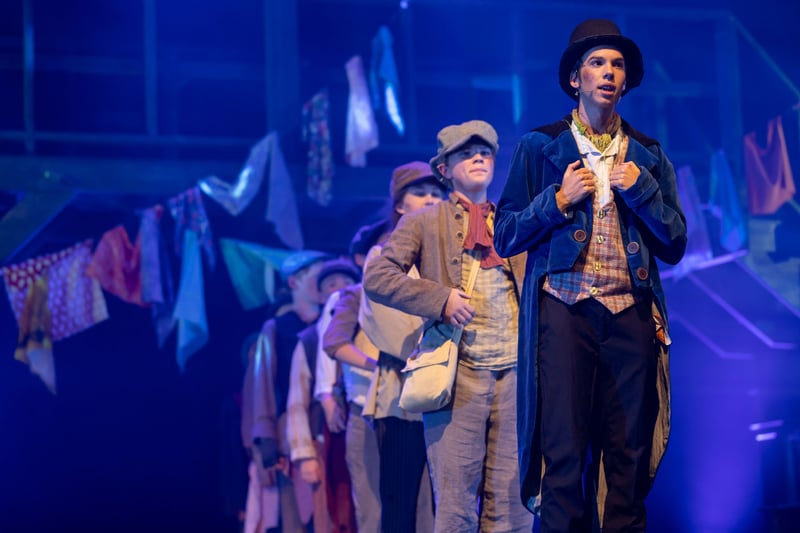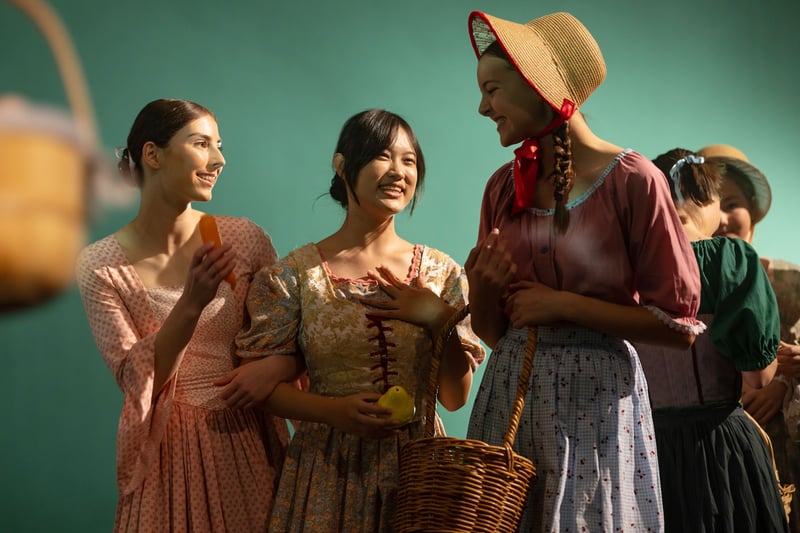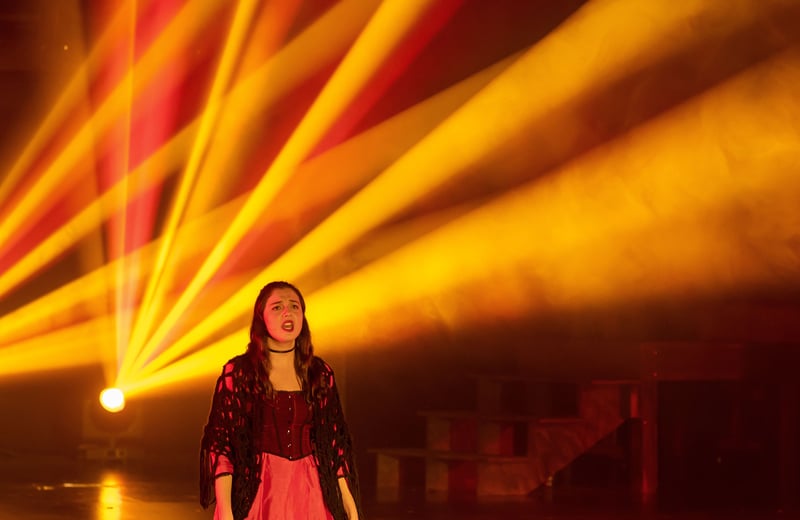
My cousin applied for a position as Head of Drama at a prestigious British private school. During the interview, she was asked to define the primary role of drama in education. Her answer? "Therapy". She got the job.
Many people see drama as a 'touchy, feely' subject that allows kids to express themselves, while having some laughs along the way.
Others view drama as a 'soft' subject for slackers who choose the easy option, or a platform for precocious starlets and exhibitionists.
But a serious subject? A compulsory subject?
Is there any real value in kids studying drama at school ... or should drama be strictly extra-curricular?
First of all, let's dispel any myths (or bad memories) of drama being about giggly role play or pretending to be a tree or melting ice-cream.
For a start, drama is not just about acting. The study of drama encompasses:
- Stage craft (costumes, lighting, sound, scenery, film and video)
- Directing (managing, leading, motivating)
- Writing, improvising and workshopping ideas to produce a script or performance
- Stage management (organising, planning, managing)
- Research and investigation
- Physical fitness and movement skills (mime, dance, mimicry etc)
- Vocal ability (projection, intonation, accents, dialects, singing etc)
- Critical thinking (interpreting scripts, exploring themes, making creative decisions)
- Problem solving (blocking a scene, creating special effects, getting a message across)
- History (performance styles, theatre and film practitioners, period drama)
And believe me, drama is not just practical; drama theory can be very challenging. Try explaining in writing (rather than speaking and gesticulating) how you would direct an actress in a particular scene to convey a specific message or emotion. Or light a stage to show the passing of time. Or adapt a stage play for film.
To do drama well (slackers beware!) a student must develop a wide range of intellectual, physical, technical, creative and interpersonal skills.

OK, gloves off here. I admit my bias; I did a degree in drama ... and there was nothing 'Micky Mouse' about it. I found it more intellectually demanding than studying English Lit, for example. I learnt leadership skills that have benefited me throughout my working life, and my foray into technical theatre made good use of my maths, physics and computer science education.
I worked in theatre, TV and film for some years but subsequently worked in journalism, web development, IT project management and marketing. Was my drama education a waste of time? Not at all! The skills and training I received through drama have been vital to my success in all these areas.
Here are just a few reasons why drama deserves a place on the school curriculum:
Drama builds personal skills …
- self-esteem
- self-expression
- the ability to think on your feet (improvisation)
- creativity and imagination
- posture/movement
- memory
- concentration
… and interpersonal skills
- empathy
- co-operation and collaboration
- negotiating
- listening (much of acting is ‘listening and responding’ to another actor)
- leading (directing/managing)
- communication
Drama develops presentation skills
In our last blog, “Tackling School Speeches and Presentations”, we looked at how you could help your child prepare for public presentations.
Drama is one of the best disciplines for learning and developing effective presentation skills.
It teaches students:
- confidence
- articulation – how to speak clearly and not mumble
- rhythm, timing and pacing
- how to work an audience, manipulate emotions and create a response in others
- non-verbal communication – through body language and facial expressions
- how to project their voice in a large venue or speak intimately and persuasively down a camera lens
- how to practice and memorise speeches
- strategies for conquering nerves and stage fright
Drama enhances everything else on the school curriculum
Drama improves literacy and vocabulary. It exposes students to different themes and perspectives. It hones critical, analytical and problem solving skills. It encourages practice (through rehearsal) and perseverance.
English Literature
How can you hope to critique the plays of Shakespeare, Chekhov or Tennessee Williams without acknowledging the medium for which they were written? Many texts studied by literature students were written for the stage. It is difficult to analyse them effectively without an appreciation of how and why they were crafted and intended to be performed. Acting out scenes or watching these plays in performance improves a student’s understanding (and recall) of such texts.
STEM (Science, Technology, Engineering and Mathematics)
Maths and physics anyone? Stage lighting design requires the calculation and application of the inverse-square law and a grounding (literally!) in electrics. Sound designers need to understand acoustics. Technology skills are required for programming and operating digital lighting and sound boards. Engineering skills may be called on for devising and implementing mechanical stage craft and special effects.

Art and Design
Costume, stage, make-up, prop, sound and lighting design all exercise students’ creativity while developing specialist design skills and technique.
History
Drama can raise a student’s cultural awareness and understanding of history – be it American history and politics (eg Miller’s allegorical ‘The Crucible’), the Spanish conquest of Peru (Shaffer’s ‘The Royal Hunt of the Sun’) or the Iraq War (Hare’s ‘Stuff Happens’).
Drama trains students to interpret themes, identify patterns and make connections across history and cultures – eg by transposing Molière’s ‘Tartuffe’ from 17th century France to modern day India. It sharpens students’ critical skills as they analyse how history is presented: How did medieval mystery plays convey biblical stories and Christian doctrine to the illiterate? Was Richard III really an evil hunchback or was Shakespeare a Tudor propagandist?
Costume and stage design may require research into period detail. Actors need an understanding of how people walked, spoke and behaved to give their performance authenticity. For example, some men’s period fashion favoured high heels, affecting the way they walked, and sleeve seams that pulled their shoulders forward, impacting their posture.
Business Studies
It's all very well being arty and creative but the success of any theatrical production, TV drama or film is just as dependent on business acumen. Budgeting, planning, market research, advertising, pitching and negotiating are all essential to getting 'bums on seats'. In a school context, this will typically be done by staff but students are often involved in the planning and promotion of a school production.
Project Based Learning (PBL)
Students fortunate enough to have Project Based Learning on their curriculum learn how to work collaboratively on a specific challenge or problem, using multiple disciplines (eg maths, English, art, chemistry).
Find out more about Project Based Learning at King's >>
Participation in a school drama production or class performance requires many of the same skills and processes as a PBL unit:
- It is a project in itself (with a defined beginning, middle and end).
- It is collaborative, requiring teamwork.
- It involves multiple disciplines (language, physics, maths, art, music etc).
- It requires planning and research.
- It relies heavily on critical thinking, creativity and communication.
- It culminates in a performance/presentation.
Think drama is just for therapy? Think again.
Further reading: 79 Reasons Kids Need to Study Drama At High School












